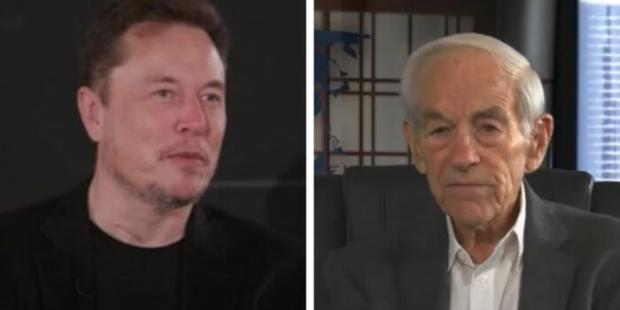
Breaking News
 Mirrored concrete for cheap solar energy
Mirrored concrete for cheap solar energy
 All Government Is Dictatorial Because All Government Is Totalitarian
All Government Is Dictatorial Because All Government Is Totalitarian
 Putin Says He's Ready for Peace
Putin Says He's Ready for Peace
 Medicaid Fraud in Minnesota at least $9 Billion Since 2018
Medicaid Fraud in Minnesota at least $9 Billion Since 2018
Top Tech News
 Perfect Aircrete, Kitchen Ingredients.
Perfect Aircrete, Kitchen Ingredients.
 Futuristic pixel-raising display lets you feel what's onscreen
Futuristic pixel-raising display lets you feel what's onscreen
 Cutting-Edge Facility Generates Pure Water and Hydrogen Fuel from Seawater for Mere Pennies
Cutting-Edge Facility Generates Pure Water and Hydrogen Fuel from Seawater for Mere Pennies
 This tiny dev board is packed with features for ambitious makers
This tiny dev board is packed with features for ambitious makers
 Scientists Discover Gel to Regrow Tooth Enamel
Scientists Discover Gel to Regrow Tooth Enamel
 Vitamin C and Dandelion Root Killing Cancer Cells -- as Former CDC Director Calls for COVID-19...
Vitamin C and Dandelion Root Killing Cancer Cells -- as Former CDC Director Calls for COVID-19...
 Galactic Brain: US firm plans space-based data centers, power grid to challenge China
Galactic Brain: US firm plans space-based data centers, power grid to challenge China
 A microbial cleanup for glyphosate just earned a patent. Here's why that matters
A microbial cleanup for glyphosate just earned a patent. Here's why that matters
 Japan Breaks Internet Speed Record with 5 Million Times Faster Data Transfer
Japan Breaks Internet Speed Record with 5 Million Times Faster Data Transfer
For Elon Musk's DOGE to Succeed, He Needs Ron Paul

For the last six decades, no figure has been more iconic and relentless in this pursuit than former Congressman Ron Paul. With excitement surrounding Donald Trump's recent announcement of a "Manhattan Project" style, Department of Government Efficiency (DOGE) led by Elon Musk and Vivek Ramaswamy, there is no more sincere catalyst to make the necessary cuts than Ron Paul. The legendary Dr. No should be brought to the table to make DOGE's leadership complete.
Proof of X's media ascendancy, I recently sat down with Ron Paul on October 31, where I posed a pivotal question no one had yet asked: Would Ron Paul be willing to assist Elon Musk in cutting federal spending if asked? He said he would but as long as it was not an official government position. My question was not just a hypothetical, it was a call to action, one that was met with an enthusiastic, viral public response. Following this interview, Elon Musk, known for his disruptive innovations, publicly embraced the idea, signaling a potential paradigm shift in how fiscal policy could be approached.
The excitement around this potential collaboration was and is palpable, especially among the millions of diehard fans of Ron Paul, libertarians, and low propensity young voters. This enthusiasm played a crucial role in mobilizing voters, particularly those who typically stay on the sidelines, to support Donald Trump in the recent election. The idea of Ron Paul's influence in a Trump administration, particularly in an advisory role to the DOGE project, aimed at slashing wasteful government spending, is not just appealing—it's necessary.
Ron Paul brings to the table a gold standard of commitment to truth and fiscal conservatism. His lifelong advocacy for reducing government, based on constitutional and natural law principles, makes him uniquely qualified. No one has more credibility on trying to help America avoid financial ruin than Ron Paul, whose warnings and efforts date back to the 1970s.
Ron Paul has expressed a desire to not have active role in governance—a perk for DOGE's announced non-governmental status. Still, his physical presence and daily involvement is not necessary. He could easily send people to represent his ideals and priorities within the DOGE project. This role would not be about wielding power but about guiding policy with unwavering principles.

 Advanced Propulsion Resources Part 1 of 2
Advanced Propulsion Resources Part 1 of 2

